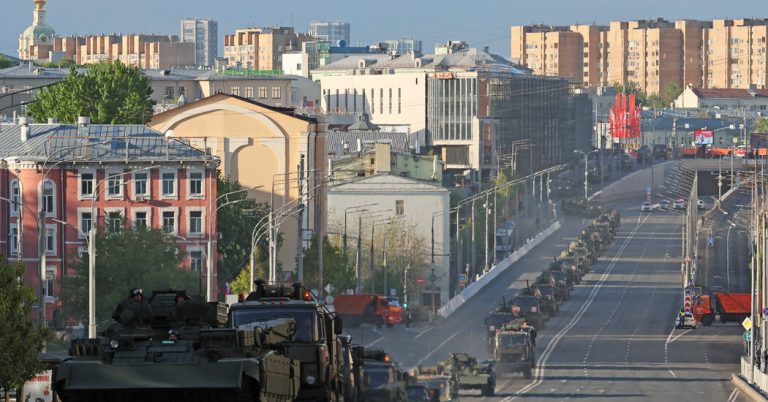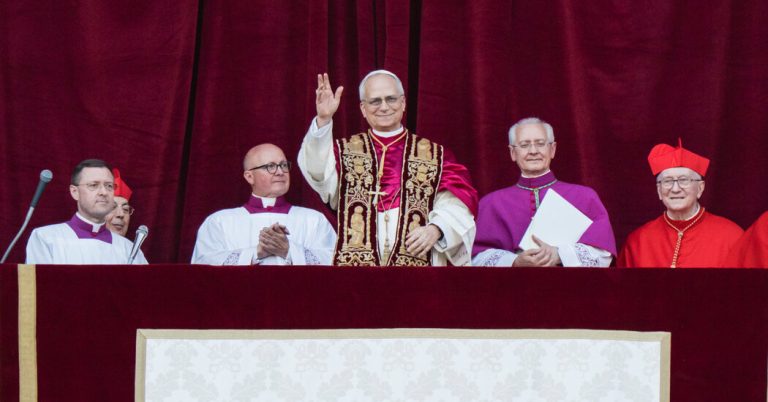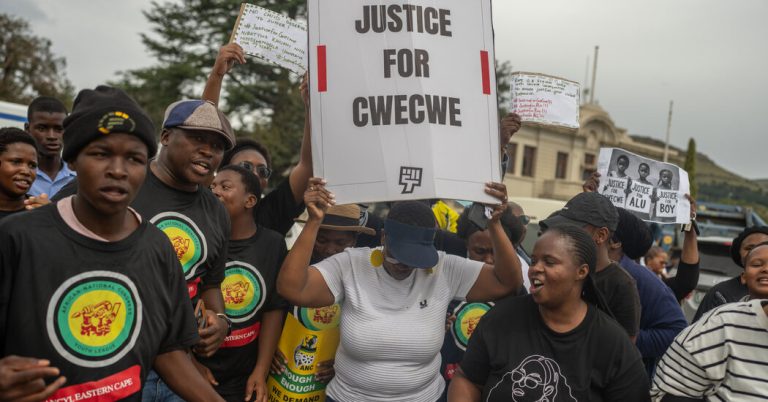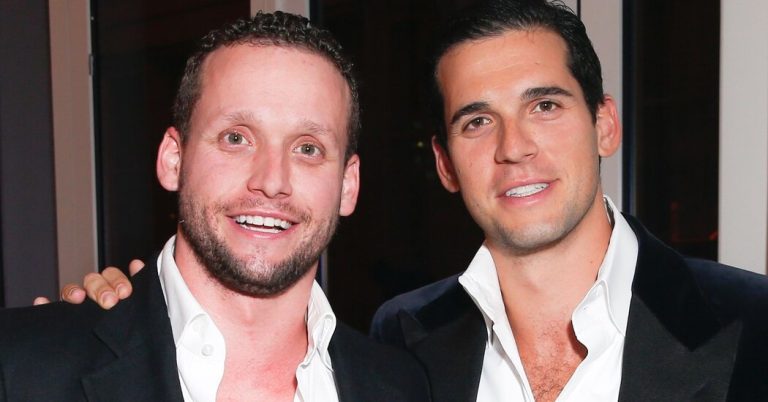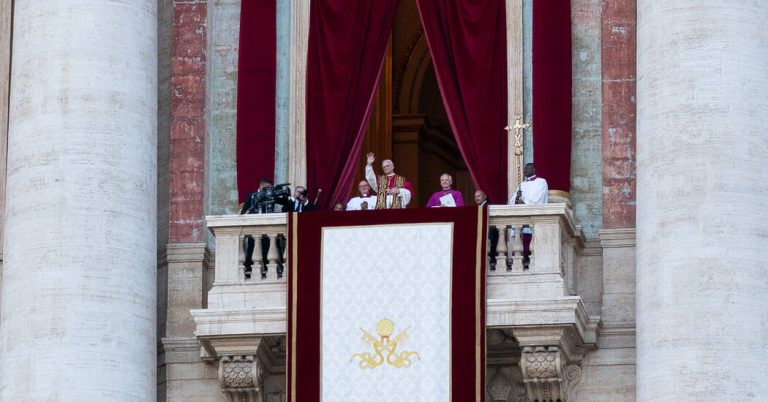CLEVELAND — Tyrese Haliburton might be on top of the world now, but he remembers the day he couldn’t look in the mirror.
Back in Indiana after a brutal loss to Charlotte in early November, he didn’t want to go to work the next day. The New York Knicks, whose season he ended in the playoffs a few months earlier, were in town. But he couldn’t stop thinking about the stinker he put up in Madison Square Garden two weeks earlier in the Pacers’ second game of the 2024-25 season.
Zero points. Not a single bucket. The Knicks had their revenge over his Pacers, and he was floundering, the quicksand of doubt pulling him in.
His friends and family told him he was fine, to keep shooting through his cold streak. Things would even out. He wanted to listen. He wanted to be grateful and optimistic. But he couldn’t do it anymore.
They just didn’t know how much pain he was holding in.
“I was really trying to run away from what was going on and I think that point was for me to be like, ‘Yo, I don’t feel like myself. I don’t feel all right. This s—, it’s bad.’ ” Haliburton told The Athletic in a phone interview last month. “I (was) struggling to look at myself in the mirror. I’m struggling to show up to work and get to the gym. I’m trying to avoid coming to work.”
Haliburton plays with so much joy, so this was a surprising admission from the player leading the most surprising potential upset of the playoffs right now. He took over the fourth quarter of Sunday’s Game 1 against the top-seeded Cleveland Cavaliers, then followed it up with a game-winning 3 with 1.1 seconds left Tuesday to put the Pacers up 2-0 in the series.
Even with his left arm looking mummified to stabilize a wrist injury he suffered earlier in the game, he was able to pull the Cavs’ injured defense apart when it mattered most in the 120-119 comeback victory.
Back in August, Haliburton was grappling with the double-edged sword of his frequent source of motivation. He actively reads his social media mentions when he’s not playing his best, knowing he can shut trolls up from the court. But after spending the early part of the summer recovering from the hamstring injury he dealt with at the end of last season, Haliburton re-aggravated it while with Team USA at the Paris Olympics and barely played in the tournament. To the outside world, he was the 12th man on a 12-man team. He even playfully made light of it when the team won the gold.
“In the season when everybody’s talking s—, I have the power to go out on the court and change people’s opinions,” Haliburton said. “With the Olympics, what could I do? I wasn’t playing, so there was only so much response I could give you. And I think that I just got consumed with the negativity of people talking s—.”
Waiting to be cleared for on-court work again, Haliburton spent the rest of the summer dwelling on the Olympics clowning. When his performances became inconsistent at the start of the new season, his propensity for reading all sorts of online criticism became overwhelming.
“I got consumed with it to the point where I stopped seeking it, and that was a negative for me, because that’s not who I am,” he said. “I didn’t want to tackle things head-on. I didn’t want to look at myself in the mirror. I was just trying to almost run from the spotlight. I’ve always been a guy who pushed into that, and I love being in that, so it was a weird feeling. I’ve never felt that insecurity before, and that was a reality check for me.”
Haliburton said he has spent the last two years going to therapy, using the Pacers’ sports psychology services and seeing his private therapist. In September, the Pacers brought a full-time mental health specialist in-house, hiring Dr. Jaimie Rubin as director of sport psychology and team wellness after she spent five years working with the Minnesota Twins and Lynx.
But after Haliburton couldn’t find his rhythm in the early weeks of the season, averaging fewer than 15 points on 38 percent shooting in his first nine games, his crisis of confidence reached a nadir. He was truly unhappy in a way he hadn’t experienced in the NBA before and didn’t feel comfortable telling most of his peers or loved ones.
With the Knicks in town and his early-season goose egg fresh in his mind, Haliburton called someone he knew would cut to the chase, who always told him the things he didn’t want to hear.
Drew Hanlen has been Haliburton’s skill trainer since 2022, but he has become far more than that in the ensuing years. A former sharpshooter at Belmont University who has Jayson Tatum, Joel Embiid and Giannis Antetokounmpo as his clients, Hanlen’s relationship with Haliburton is more akin to a life coach who is happy to set him straight.
Usually, that means shoving Haliburton through apprehension. Hanlen leads with tough love, often texting Haliburton at halftime to get his act together or burying him in video, which details all his mistakes. He would always chide Haliburton anytime they bumped into a mental block, daring him to resist being feeble enough to bend to the will of doubt.
“Sometimes I’ll say something and he’ll be like, ‘Tyrese, shut the f— up. That’s not the problem,’ ” Haliburton said. “Mental health professionals probably give me a much more PG answer, where Drew is not afraid to be like, ‘Yo, shut the f— up. That’s not the issue. Let’s go back into different layers and talk more about that.’ ”
Typically, Haliburton would stand tall, shake things off and find his way. But this time, Haliburton laid it all out there: The fear of failure, the feeling of being lost, the desire to avoid the gym and all of the outside noise it represented. Hanlen listened, helping Haliburton peel back all the layers.
“I spend very little time trying to convince (players) to do anything,” Hanlen told The Athletic. “Instead, I try to connect with them, listen to them, hear them out and then try to rewire what’s possible in their mind and why it should matter.”
It can be scary to be vulnerable, whether out of fear of rejection or letting loved ones down by not being strong. But for Haliburton, that moment felt liberating. The conversation with Hanlen made Haliburton feel comfortable coming to his girlfriend, Jade, and loved ones with his struggles. It was the first step toward shaping a healthier mindset.
“I hadn’t told anybody and I really obviously didn’t want to tell anybody,” Haliburton said. “And so when me and Drew finally had that conversation and tried to figure out the right way to shift things from there, I think that that was really important for me. And I think it, very much so, led to the shift that I’ve had this season.”
The next day, Haliburton entered Gainbridge Fieldhouse with one thing on his mind: Take down the Knicks by attacking without reservation. Thirty-five points and a comeback win later, he was on the long road to resurgence.
“I just remember I felt, in that moment, just right from the jump, I felt like myself again,” he said.

The rebirth didn’t happen overnight. The Pacers began the season 10-15, as Haliburton’s numbers dipped to a pedestrian 17.5 points and 8.4 assists per game on just 42 percent from the floor. The Pacers fell well short of the NBA Cup knockout stages one year after a run to the title game put Haliburton and Indiana on the map.
With no trip to Vegas, Haliburton had time to ruminate. His backcourt partner, Andrew Nembhard, returned from left knee tendinitis, giving Haliburton the freedom to operate away from the ball and maximize his skill set. The Pacers went on a five-game winning streak and vaulted from 11th to fourth in the East by mid-February.
Haliburton shot 40.3 percent from 3 from Dec. 13 until the All-Star Game, which he missed for the first time in three seasons. Then, he returned from the break on fire, averaging 20.6 points, 11.0 assists and just 1.2 turnovers per game while shooting 43.9 percent in the final third of the season.
The Pacers went 16-5 over their final 21 games before steamrolling the Milwaukee Bucks in the first round. Now they return to Indiana with a 2-0 lead over Cleveland that few people saw coming, particularly with the way he won both games with the ball in his hands.
Isolation has never been Haliburton’s strong suit. Unlike most stars who crave it, he’s an offensive engine that conducts a breakneck system that has long been geared for him to set up everyone else. On defense, teams target him in one-on-one situations, hoping the Pacers’ defense breaks.
When Haliburton first met with Hanlen midway through his second season, he asked the coach to teach him to improve his scoring chops. Hanlen told him he’d take the job, but their focus was going to be on shifting his mindset, not just his skill set.
To this day, Hanlen texts Haliburton two words before every game: Orange thing.
He wants Haliburton’s mantra to be about scoring in that orange rim Hanlen keeps talking about, even if five defenders stand in his way. He’ll show up to Haliburton’s games and write it in big orange letters on his phone, holding it up courtside and yelling at Haliburton during play.
Following their regular pregame film review Tuesday morning, Hanlen sent Haliburton a text with 26 orange emojis, ranging from a comet to a carrot to the Japanese kanji character for “acceptable.” By the end of the night, it was clear Haliburton received the message. It’s not that hard to convince Haliburton to look for the orange thing anymore.

There was another moment earlier in the playoffs that illustrated Haliburton’s comfort in his skin. In mid-April, Haliburton and the basketball world learned his peers voted him the NBA’s most overrated player in The Athletic’s annual anonymous player poll. It was a fitting bookend to a season that began with Haliburton feeling weighed down by a cacophony of fan criticism.
Haliburton’s coach, Rick Carlisle, defended him and other “most overrated” vote recipients like Jimmy Butler and Antetokounmpo.
“I wanna see the guy’s faces that voted (for) those guys. I wanna see the faces of those guys,” Carlisle told the media after the Pacers’ Game 2 win over the Bucks in the first round. “This is a bulls— poll. Not everybody even answered in the poll, alright? Guys were able to answer (only) if they wanted to.”
Haliburton’s reaction?
“I think at this point, it’s just more something to laugh at,” Haliburton said. “S—, Rick was not a fan.”
Haliburton credits Embiid and Tatum for “keeping it 100” conversations that helped him build that immunity to rejection. Embiid, who has been subject to ridicule as he fails to stay healthy, has been texting with Haliburton throughout the postseason, imploring him to shoot the ball more.
“At some point, worrying about what my peers think only holds so much weight. I think my peers (whom) I really respect, that changes things,” Haliburton said. “For that poll, there’s no names to faces, it’s all anonymous. Having relationships with guys like Jayson and Joel, who are guys that I know at the top of the game, them being honest with me, that’s important. I respect their opinions more than anybody.”
With the Pacers heading back to Indiana in full control and Haliburton’s heroics defining this second-round series, he shouldn’t have much trouble shaking the overrated label. As Cavs fans showered him with “overrated” chants when Haliburton stepped to the line just before halftime Tuesday night, he was unbothered. It was just something to laugh at now.
He couldn’t see it behind him, but Donovan Mitchell was motioning to the crowd to stop the chant. As a fellow All-Star, he could guess how the trolling would fuel Haliburton.
In the end, he was right.
“That one was unexpected. I didn’t know we had beef,” Haliburton told the media after Game 2. “Now that that label’s there, it’s going to be that every time we play somebody on the road. It’ll probably follow me until the next poll comes out, and we’ll see if I’m No. 1 again.
“But for me, I just control what I can, man. Overrate that.”
(Top photo: Joe Murphy / NBAE via Getty Images)

